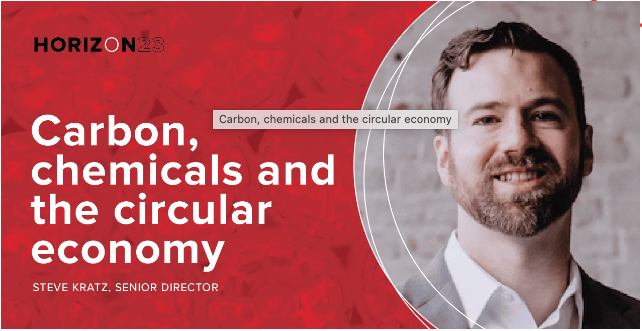
Steve Kratz is a Bravo Group Senior Director and president of the Pennsylvania Chemical Industry Council. With more than 15 years of political, government and advocacy campaign experience, Steve brings solutions to clients across industries, including Fortune 500 companies and trade associations, with a special focus on businesses in highly regulated industries.
- Advanced recycling, chemical manufacturing and the move to a circular economy will be hot button issues not just for the chemical, plastics and waste communities, and regulators, but for any company looking to reduce its carbon footprint and provide more sustainable product options for customers. We all depend upon plastics in our daily lives, but the challenge of plastic waste is growing. Long-proven advanced recycling technologies, which only recently became economically viable, transform plastics into base materials that can be used to create new products, fuels and materials. This includes new advances to tackle hard-to-recycle plastics. That’s the purest example of a circular economy, where all materials are reused and no waste is created. In 2019, Pennsylvania passed advanced recycling legislation, which positioned the commonwealth as a leader amongst states in this burgeoning nationwide industry. Set up Google alerts on this topic for sure.
- Industry will continue to lead the way in investing in sustainable innovations to achieve net-zero emission goals. Advanced recycling is just a fraction of the action. Companies have set their own aggressive carbon goals that dovetail with their business plans and values, and they are diversifying their energy choices, reducing material and virgin resource use, and developing novel ways to produce sustainably. The key is to allow market and customer demand to be the leading factors for industry decisions on how and when to make these investments. Policymakers need to refrain from forcing ever-more stringent and unrealistic mandates, which only quashes innovation. It will be a continuing saga of innovators vs. regulators, and finding common ground to achieve mutually desired outcomes.
- Pennsylvania’s divided government could provide a unique opportunity for developing truly bipartisan solutions. With a likely evenly divided or narrowly controlled House, a new administration and a Republican-controlled Senate, the ingredients are available to dish up a true bipartisan stew of legislation to move the Keystone State above the mire of today’s political climate. It’s a rare opportunity to effectively address the state’s infrastructure needs, emerging energy options and policies that let public and private sectors work together for progress. Do we have what it takes to sustain the new promise these changes bring, or will we quickly revert to partisan politics as usual?
- The pandemic brought increased attention to an issue that has been brewing for several decades: how to effectively move raw materials to manufacturers, and end products to consumers. Our modern world depends on efficient supply chains. Getting a gift delivered on Dec. 26 is annoying; not being able to get PPE, vaccines, respirators and pharmaceuticals can be a matter of life or death. From medical equipment, new vehicles, building materials, energy, pharmaceuticals and more, there is a renewed emphasis by industry and government leaders on shoring up supply chains and growing advanced manufacturing capacity in proximity to customers. Government leaders who effectively balance economic and tax incentives with regulatory policies that encourage economic investment and growth will be well positioned to capitalize on growing advanced manufacturing in their states.
- PFAS, PFOS and PFOA are “forever chemicals” that have become a primary focus for federal and state regulators across the country. While most manufacturers have phased out or are phasing out the use of these compounds in products such as nonstick cookware, waterproof cosmetics and firefighting foam, the characteristics of what made these chemicals effective have now become a challenge to manage and mitigate. As state and federal regulators tackle changes, industry environmental leads are frantically trying to keep up on compliance requirements, which vary in each state. The Environmental Protection Agency is expected to issue new rules in 2023. Will they strike the proper balance to protect public and environmental health and safety, while establishing realistic expectations for industry compliance? One thing is certain: Regulating forever chemicals and environmental justice are going to dominate the regulatory space this year.